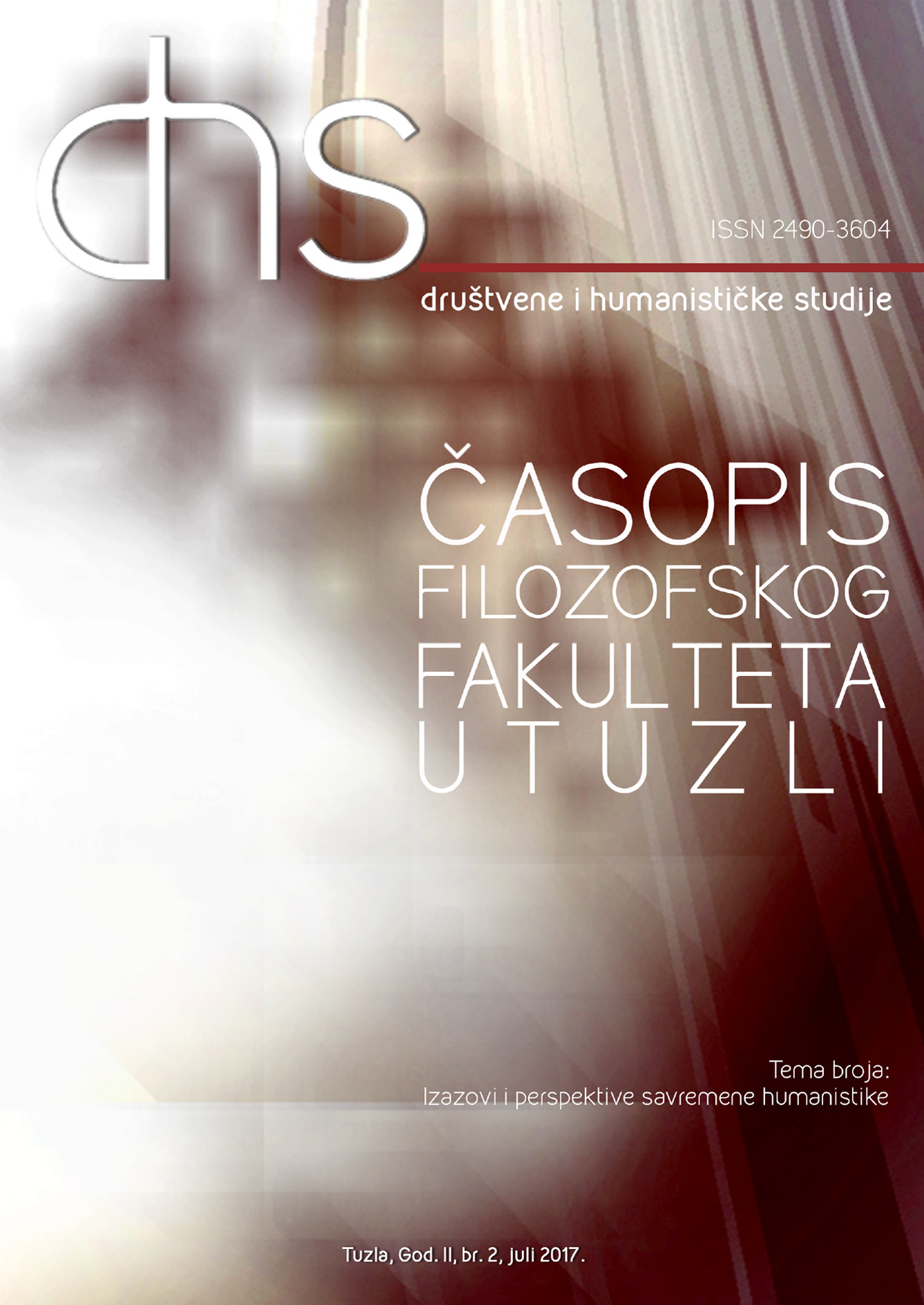Nauka i etika, načela i vrednosti
Science and Ethics, Values and Principles
Author(s): Željko KaluđerovićSubject(s): Philosophy, Ethics / Practical Philosophy, Philosophy of Science
Published by: Filozofski fakultet Univerziteta u Tuzli
Keywords: logocentrism; homocentrism; freedom; responsibility; science; (bio)ethics; paideia;
Summary/Abstract: The modern civil epoch is founded on logocentric image of the world, the meaning of which is derived from the high level of confidence in human spiritual abilities. Logocentrism, in other words, represents the view that the principle of understanding is the basis of man's world but also the universe as a whole. Homocentrism, on the other hand, as a modern worldview is based on antique vision of man as an individual being among other natural beings. Such an understanding comes from the belief that the ultimate basis of the man’s world is not determined by nature, god, necessity or chance, but that man, as a free individual, with his powers is the basis of human historic world. The results of scientific achievements and observations, although primarily inclined towards the progress and achievement of the highest human values, particularly due to the aforementioned freedom and the possibility of choice, can have negative or even dramatic consequences. H. Marcuse in one of his stages even believed that the scientific and technical process almost completely got out of hand in terms of human control, and that the dilemma whether our planet will survive or perish will be decided by coincidence. Closer to the truth, in the author's opinion, is the view that, regardless of all its ambivalence, scientific achievements are still under the control of man, and that in different modes that control can be more efficient and more differentiated in the future. The author thinks that in the era of rapid strengthening of social and technological effects of science, it is necessary to (bio) ethically codify the issue of social responsibility of scientists which, in order to be adequately internalized, must be an integral part of their upbringing and education from the earliest days. It is very important that scientists in their perceptions and insights, which especially in the area of humanities have a character of value judgments, do not go below the achieved civilization standards of ethical and moral culture and that they reflect on different topics with due caution and awareness of the dilemmas they may encounter in their professional work. That is why the question of their responsibility is crucial, it is the essential question of their actions, and not an incidental question that can be but not necessarily linked to what is happening in the field of science and technology. Corresponding interdisciplinary and multidisciplinary approach, as well as awareness of essential compatibility of scientific freedom and responsibility, finally, should result in a different and more sophisticated attitude of scientists themselves towards the possibilities of their own discipline and significance of its effects.
Journal: DHS-Društvene i humanističke studije: časopis Filozofskog fakulteta u Tuzli
- Issue Year: II/2017
- Issue No: 2
- Page Range: 13-32
- Page Count: 20
- Language: Bosnian

